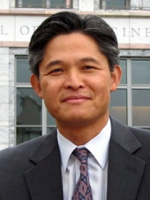Flow sensitive genes in endothelial inflammation and atherosclerosis
Atherosclerosis is the major underlying cause of myocardial infarction and stroke and preferentially occurs in arterial regions exposed to disturbed flow (d-flow) by mechanisms involving broad changes in gene expression. We have shown that D-flow rapidly induces atherosclerosis in vivo using a mouse partial carotid ligation model. In addition, we developed a novel intimal RNA/DNA preparation method using this animal model and identified numerous mechanosensitive endothelial genes and epigenetic DNA methylome that change in response to d-flow. We showed that flow robustly regulate expression of microRNAs, including miR-712/205 family and miR-663, and their roles in endothelial inflammation and atherosclerosis. Our results showed that targeting mechanosensitive “athero-miRs” with anti-miR-based approaches may provide a new treatment paradigm in atherosclerosis. We also showed recently that these anti-miRs can be delivered to inflamed endothelium in vivo by using the VCAM1-targeting nanoparticle to treat atherosclerosis in mouse. These flow-sensitive novel anti-atherogenic therapeutics and their targeted delivery using nanoparticles are exciting future directions in prevention and treatment of atherosclerotic diseases.
Biography
 Dr. Hanjoong Jo is John and Jan Portman Professor and Associate Chair for Emory BME in the Coulter Department of Biomedical Engineering (BME) at Georgia Tech and Emory University, and Professor of Medicine at Emory University. Dr. Jo received BS at Korea University and PhD at Pennsylvania State University. Following postdoctoral training in Jay McDonald Lab at Washington University in St. Louis and University of Alabama at Birmingham, he became Assistant Professor in Pathology and Biomedical Engineering. Dr. Jo joined the BME Department at Georgia Tech and Emory University in 2000. He directs the Cardiovascular Mechanobiology and Nanomedicine lab. His lab studies how blood flow regulates genes in endothelial cells, and how they induce or prevent atherosclerosis and aortic valve disease. To this end, his lab uses OMICs approaches to discover novel flow-sensitive coding and non-coding genes, develops novel therapeutics by targeting the flow-sensitive genes, and develops novel nanodelivery methods for targeted therapies to treat the cardiovascular disease. He has published more than 165 peer-reviewed papers and two books as editor. He is an elected fellow of American Institute of Medical and Biological Engineering, Biomedical Engineering Society, American Heart Association and American Physiological Society. He served as associate editors and editorial board members of several journals including Scientific Reports, Atherosclerosis Thrombosis Vascular Biology, Am J Physiology and Cardiovascular Engineering and Technology. He also has been serving as reviewers and chairs of study sections of the NIH, NSF, Veterans Administration and Am Heart Association. He served as the Chair of several international conferences including the Annual BME Society Meeting in 2012 and 11th International Symposium in Biomechanics and CVD. He is also the founding President of Korean-American BME Society and Chairs of US-Korea Annual BMES Workshops since 2013 as well as the Program Co-Chair of 2016 US-Korea Conference. He has been a Distinguished Visiting Professor at Ewha Womans University and Chonbuk National University.
Dr. Hanjoong Jo is John and Jan Portman Professor and Associate Chair for Emory BME in the Coulter Department of Biomedical Engineering (BME) at Georgia Tech and Emory University, and Professor of Medicine at Emory University. Dr. Jo received BS at Korea University and PhD at Pennsylvania State University. Following postdoctoral training in Jay McDonald Lab at Washington University in St. Louis and University of Alabama at Birmingham, he became Assistant Professor in Pathology and Biomedical Engineering. Dr. Jo joined the BME Department at Georgia Tech and Emory University in 2000. He directs the Cardiovascular Mechanobiology and Nanomedicine lab. His lab studies how blood flow regulates genes in endothelial cells, and how they induce or prevent atherosclerosis and aortic valve disease. To this end, his lab uses OMICs approaches to discover novel flow-sensitive coding and non-coding genes, develops novel therapeutics by targeting the flow-sensitive genes, and develops novel nanodelivery methods for targeted therapies to treat the cardiovascular disease. He has published more than 165 peer-reviewed papers and two books as editor. He is an elected fellow of American Institute of Medical and Biological Engineering, Biomedical Engineering Society, American Heart Association and American Physiological Society. He served as associate editors and editorial board members of several journals including Scientific Reports, Atherosclerosis Thrombosis Vascular Biology, Am J Physiology and Cardiovascular Engineering and Technology. He also has been serving as reviewers and chairs of study sections of the NIH, NSF, Veterans Administration and Am Heart Association. He served as the Chair of several international conferences including the Annual BME Society Meeting in 2012 and 11th International Symposium in Biomechanics and CVD. He is also the founding President of Korean-American BME Society and Chairs of US-Korea Annual BMES Workshops since 2013 as well as the Program Co-Chair of 2016 US-Korea Conference. He has been a Distinguished Visiting Professor at Ewha Womans University and Chonbuk National University.
